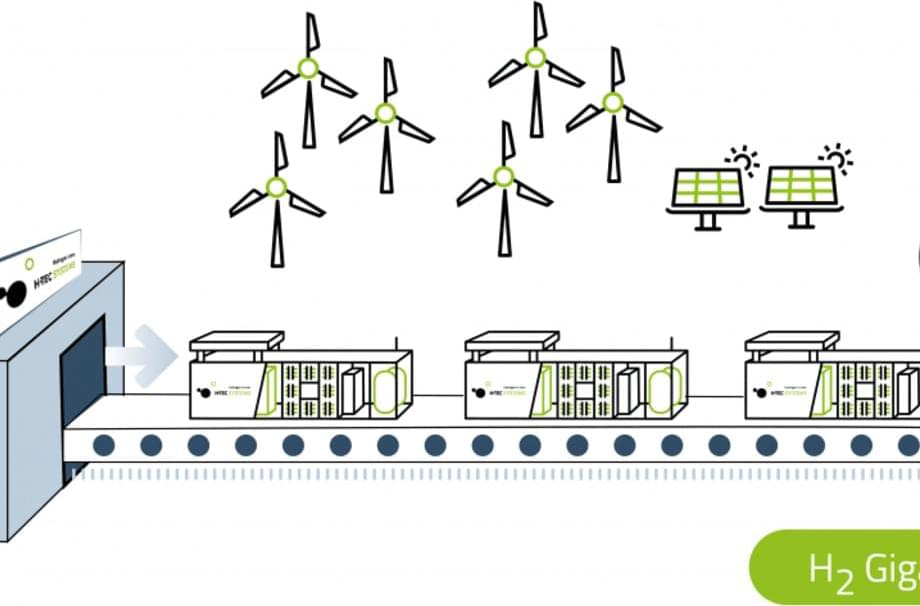H-Tec Systems receives research funding to advance research project PEP.IN with PEM electrolysers expertise as part of the H2Giga hydrogen project.
Augsburg-based hydrogen technology company H-Tec Systems is now officially part of the H2Giga hydrogen project for research & development into the series production of PEM electrolysis stacks and electrolysers. The German Federal Ministry of Education and Research (BMBF) is supporting H2Giga with a total funding volume of up to 500 million euros. The aim is to identify and test novel processes for the competitive mass production of electrolysers in Germany to make green hydrogen affordable and competitive.
As an expert and visionary in green hydrogen technology, H-Tec Systems is receiving research funding for the H2Giga project “PEP.IN” to further advance series production. By spring 2025, H-Tec Systems will identify new production processes for PEM electrolysis stacks and electrolysers in the gigawatt range and develop corresponding test facilities to quickly set up and commence series production.
The H2Giga project PEP.IN stands for Industrialisation of PEM Electrolysis Production and aims to optimise processes and equipment to produce electrolysers and electrolysis stacks in mass production. Part of the research work within the project is the investigation of a production plant for electrolysis stacks and electrolysers. In addition, a central component of the project is the further development of the electrolysis stacks to make them as simple and cost-effective as possible to produce. For smooth, highly available and cost-effective production, it is necessary to align the corresponding supply chains to the needs of the production. In addition, the individual components of an electrolyser will be considered in order to implement automated production of electrolysers in the gigawatt range. By collecting smart stack and plant operating data, H-Tec Systems will also contribute to the further development of the plants.





